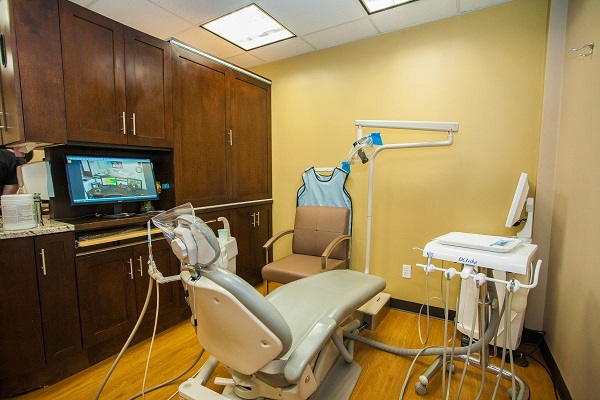
Dentists Come in Many Forms
Different dentists treat specific challenges, much as doctors do. While any dentist can practice general dentistry, some choose to specialize in certain procedures. Braces and tooth alignment, pediatric dentistry, replacement dentistry, major dental surgery, and specialist gum care are examples of these procedures.
When it comes to dentists, there are seven different things to choose from. Let’s look at each of these types and how they give specialized types of dental treatments.
Dental Specialists and Associated Treatments
Regular visits to a general dentist are the best way to determine which expert will do the dental work you require. Routine oral exams help your general dentist detect potential concerns and, if necessary, refer you to a specialist.
- General Dentists – They provide general dental care, such as dental cleanings and exams. They also offer emergency dental services, fillings, tooth restoration, crowns, bridges, and veneers. Oral cancer screenings and gum disease treatments are also conducted by general dentists.
- Orthodontists – Malocclusion is a disorder in which the teeth in the upper and lower jaws are not aligned properly, resulting in an under or overbite. Orthodontists specialize in treating malocclusion. Orthodontists use both fixed and removable appliances to realign teeth and adjust a person’s bite over time.
- Pediatric Dentist – Pediatric dentists are extensively trained to work with a kid’s growing teeth and jaw, as well as child behavior, physical growth and development, and special needs children. Tooth decay, tooth placement, crowding, crooked teeth, and missing teeth are all common problems they treat. Pediatric dentists assist in the prevention and treatment of tooth decay in children because they are more prone to it.
- Endodontists – Endodontists are experts in the dental pulp, blood vessels, tissues, and nerves that surround the root of a tooth. They’ve had extensive training in root canal therapy and dental pulp disease treatments. General dentists conduct two root canals every week on average, while endodontists perform over twenty.
- Oral Surgeons – Wisdom tooth extractions are the most common procedure performed by oral surgeons, especially when the wisdom teeth are impacted. They also do more difficult oral procedures, such as correcting misaligned jaws, face injuries from an accident, dental implants, TMD surgeries, bone transplants, and oral biopsies to check for oral cancer, in addition to these extractions.
- Periodontists – A periodontist specializes in problems with the gums, bones, and tissues that sustain the teeth. They concentrate on gum disease prevention as well as the treatment of gum disease and periodontal disease. These dentists collaborate closely with general dentists to help prevent gum disease and provide treatment strategies for those who already have it.
- Prosthodontists – Prosthodontists create oral prostheses to replace missing or damaged teeth, enhancing both appearance and function. Crowns, bridges, veneers, dentures, and implants are examples of oral prostheses. When treatment permits, prosthodontists collaborate with general dentists and endodontists to supply these dental appliances.
- Cosmetic Dentistry – Cosmetic dentistry treatments enhance a patient’s self-esteem by improving their smile. Cosmetic dentistry is practiced by many general dentists. To get qualified, they must complete further training after dental school.
Visit One of the Finest Dentists in Massachusetts
Somerville and Medford’s dentists treat unique dental issues, while general dentists may handle the most common dental issues. Knowing the various sorts of dentists might assist you in determining which one you require for the greatest dental care.
Our Somerville and Medford dental staff can help you meet with a general dentist, cosmetic dentist, periodontist, endodontist, orthodontist, oral surgeon, prosthodontist, or pedodontist. Please contact us to make an appointment for all of your dental needs.
